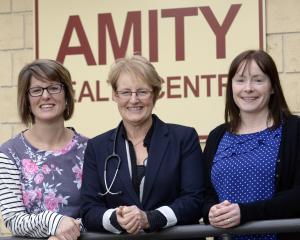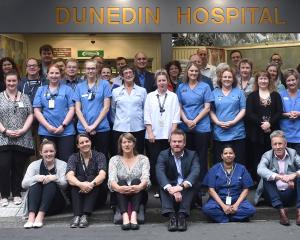More than 20 years since news of "the unfortunate experiment" at National Women's Hospital shocked the nation, the war of words over the Cartwright Inquiry has been reignited by a new collection of essays aimed at debunking critics.
The controversy was first sparked by a 1987 Metro magazine article which alleged that Herbert Green, a gynaecology and obstetrics specialist at the Auckland hospital, had for years withheld conventional treatment from patients without their consent to prove carcinoma in situ (CIS) did not progress to cervical cancer.
A subsequent six-month inquiry heard by Judge Silvia Cartwright, now Dame Silvia, found Dr Green had acted unethically and caused undue suffering to dozens of patients, some of whom later died of cancer as a result of his mistaken beliefs.
Debate surfaced again last year when Auckland University historian Linda Bryder published a critical history in which she argued Dr Green was unfairly targeted by feminists bent on bringing him down for what they saw as a patriarchal and misogynistic medical elite.
Her book claimed Dr Green had not acted unethically or conducted any experiment, and concluded the inquiry had wrongly demonised his research.
But a new collection of essays from experts and inquiry witnesses has rallied against Dr Bryder's thesis, claiming she misinterpreted medical science and ignored compelling historical evidence.
The Cartwright Papers, edited by Auckland University associate law professor Joanna Manning, begins with a foreword which is scathing of Dr Bryder's work.
"The author seems to have adopted a particular position and then done everything she can to marshall evidence in support of it ... her book is not a worthy contribution to the debate about Green's study and its consequences," writes Sir David Skegg, expert witness to the inquiry and now Vice-Chancellor of Otago University.
Although Dr Green followed his patients assiduously and was right to question the accepted treatment of CIS, his study was "tragically wrong" because it flouted precautions and did not gain the consent of patients, Sir David wrote.
Former patient and cancer sufferer Clare Matheson, who helped to expose the study, wrote of how she was subjected to numerous tests before much later realising she had been treated "like a laboratory rat".
"Never let us forget that here in this little country there were years of unethical human experimentation," she wrote.
"That is our great shame. We must never forget, lest it happen again."
The book features contributions from Metro article co-author Sandra Coney, Otago University medical historian Barbara Brookes, former National Women's obstetrician and gynaecologist Ron Jones, and medical adviser to the inquiry Charlotte Paul, among others.











